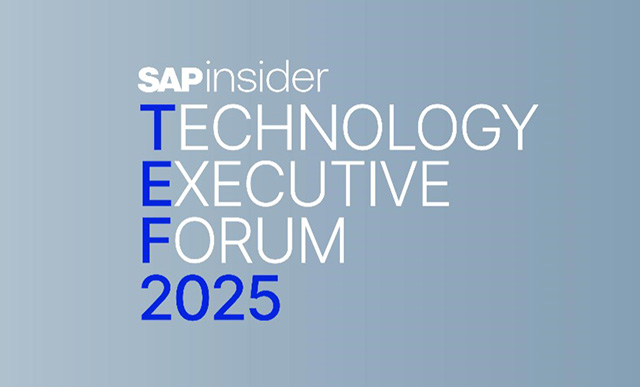Digital Transformation: Growing Revenue for Wholesale Distributors
Meet the Authors
Key Takeaways
Automation, standardization, and redesign of business processes are the top transformation projects for Chief Investment Officers (CIOs), followed closely by the move to SAP S/4HANA.
Wholesale distributors face challenges in digital transformation, including reliance on legacy systems, high implementation costs of ERP and AI tools, and varying levels of technology adoption among customers and suppliers.
Adopting modern ERP solutions like SAP S/4HANA can help mid-sized wholesalers boost revenue by providing real-time insights, optimizing inventory management, and enhancing customer engagement through personalized experiences.
Automation and standardization or redesign of business processes remain at the top of the two most important digital transformation projects for Chief Investment Officers (CIOs), according to the latest SAPinsider CIO’s 2024 Transformation Report Card. It is closely followed by the move to SAP S/4HANA with 46% of the CIOs surveyed pegging it as a top transformation project.
These statistics are also relatable to wholesale distribution, with CIOs from this industry featuring among the top three sectors represented in the survey.
Key-growth drivers and challenges
Jeff Mok, Industry Solutions Principal, Wholesale Distribution at NTT DATA Business Solutions, puts eCommerce at the top of the industry’s growth drivers. “It has made multi-channel experiences essential, allowing customers to access products quickly and conveniently,” he notes.
Explore related questions
Mok adds that personalization in B2B commerce also plays a crucial role, with customized pricing and delivery options catering to modern buyer expectations. Mergers and acquisitions drive growth by enabling businesses to expand their market presence and capabilities. Supply chain optimization has also become a priority, with companies leveraging advanced strategies to ensure efficient product flow and adapt to market fluctuations.
As a result of all these opportunities, investment in technology, including advanced software and integrated systems, continues to streamline operations and enhance decision-making. “AI and automation are transforming the industry by optimizing inventory, automating processes, and improving forecasting to effectively meet evolving market demand,” Mok says.
Closing the gap
Still, mid-size wholesale distribution companies’ digital transformation journeys lag other industries. To close this gap, wholesale distributors must focus on implementing integrated systems and transitioning from legacy software to modern ERP solutions like SAP S/4HANA.
Mok says that these solutions unify processes across departments and improve overall efficiency. Moreover, leveraging real-time analytics and AI is essential for gaining actionable insights into customer behavior, optimizing operations, and forecasting demand trends.
“Cloud technology offers scalability, enhanced data accessibility, and seamless collaboration, making it a critical component for growth,” says Mok. “Personalization strategies, supported by tools like SAP Sales Cloud, can drive better engagement through a tailored customer experiences solution.”
However, to achieve their goals in the digital transformation journey, wholesale distributors must let go of their reliance on legacy systems that cannot deliver real-time actionable data. Some more hurdles faced by wholesalers in their digital transformation journey include:
- Balancing the vastly different levels of technology adoption between their customers and suppliers
- The high costs associated with implementing ERP systems or AI tools, especially for mid-sized businesses
- A lack of clear strategy that often leads to missteps, inefficiencies, and wasted resources
- Slow adoption of the new system due to resistance to change from employees or leadership
- Skill gaps in advanced technologies like AI or cloud computing
Mok believes overcoming these obstacles requires a phased approach with well-defined objectives, a focus on employee upskilling, and strong change management to ensure alignment and adoption while maintaining flexibility for diverse stakeholder needs.
Raising revenue
Mid-sized wholesale distributors can also boost their revenue by adopting modern ERP solutions like SAP S/4HANA. The real-time insights, automation of routine processes, seamless integration across departments to reduce inefficiencies, and scalability for evolving business needs that are provided by SAP S/4HANA help wholesale distributors to:
- Deliver personalized customer experiences through tailored pricing and promotions
- Leverage analytics to gain deeper insights into customer behavior
- Identify opportunities for cross-selling and up-selling
- Optimize inventory management to reduce overstocking and stockouts
- Streamline operations with automation to minimize costs and errors
- Expand eCommerce capabilities with robust online platforms that offer access to a broader customer base
Additionally, AI holds huge potential for wholesale distribution. However, Mok notes that the industry is still figuring out the best way to harness it. “The industry is being thoughtful in its approach, taking small, practical steps to integrate AI where it can have the most immediate impact,” he says. Some excellent starting points to unlock AI’s potential include suggesting products for customers, improving cross-sell and up-sell opportunities, analyzing RFPs, enhancing customer service, and streamlining product attribute searches.
“As we refine our strategies and better understand the technology, we’ll be able to scale its use and maximize its benefits,” Mok concludes.






